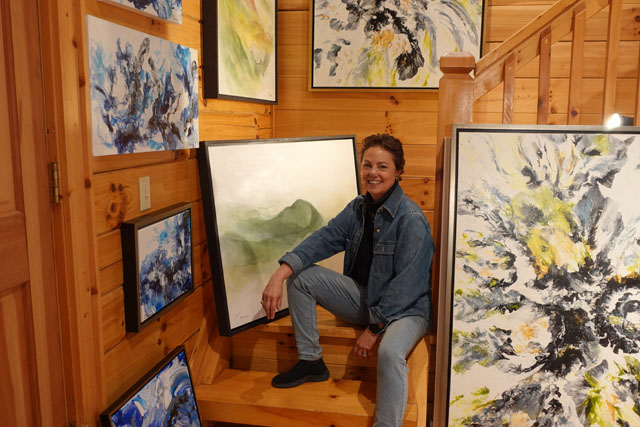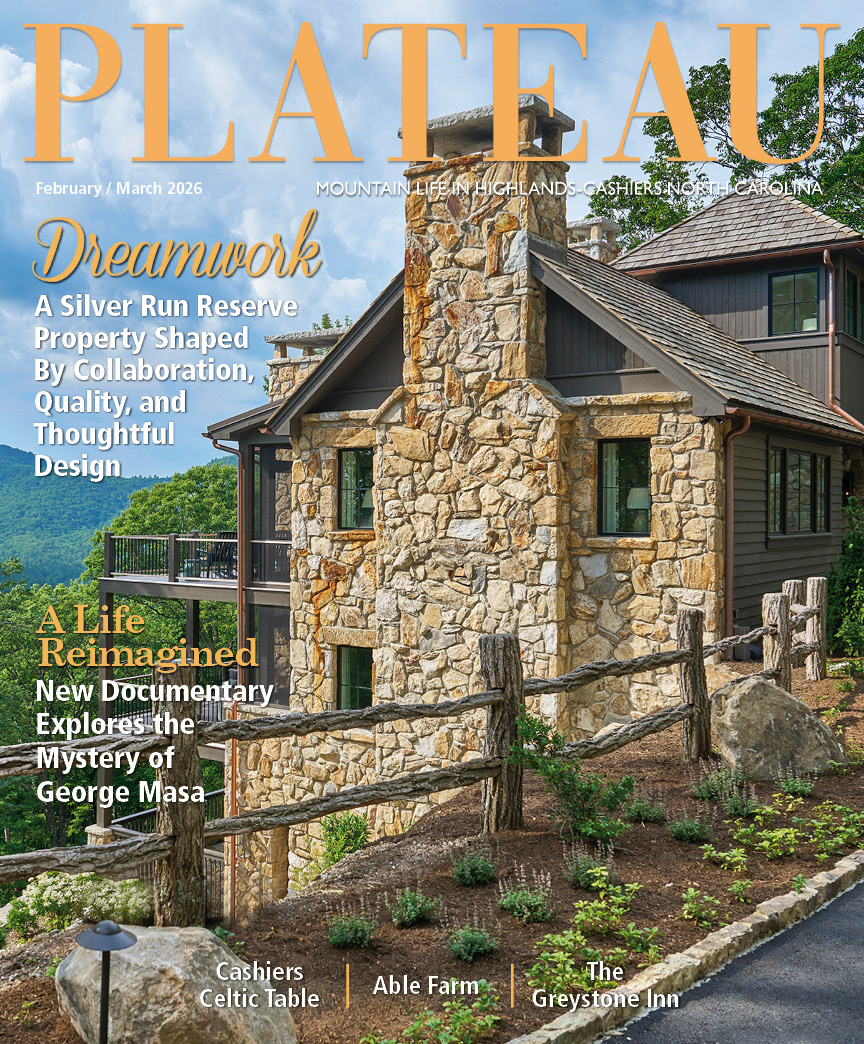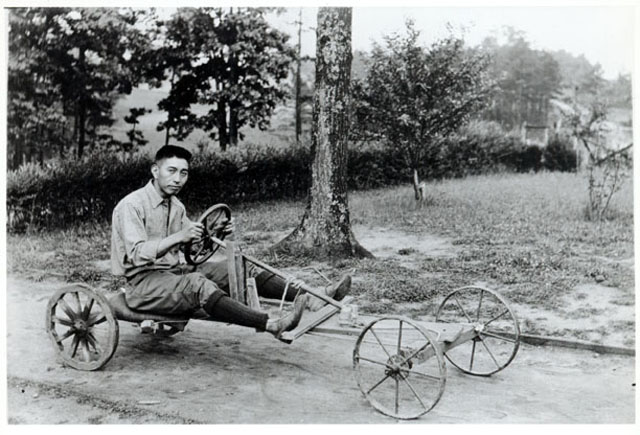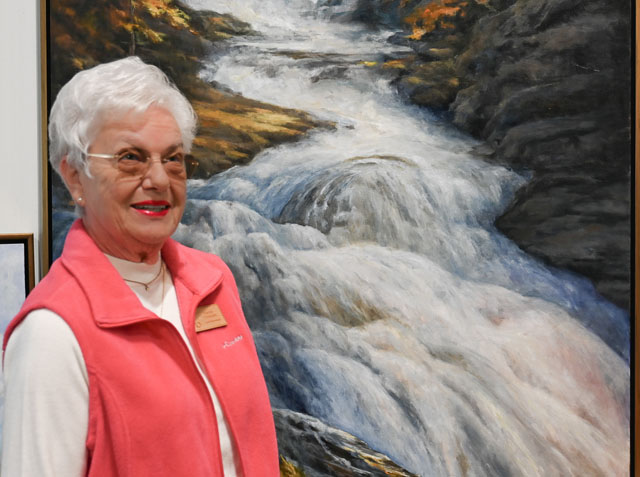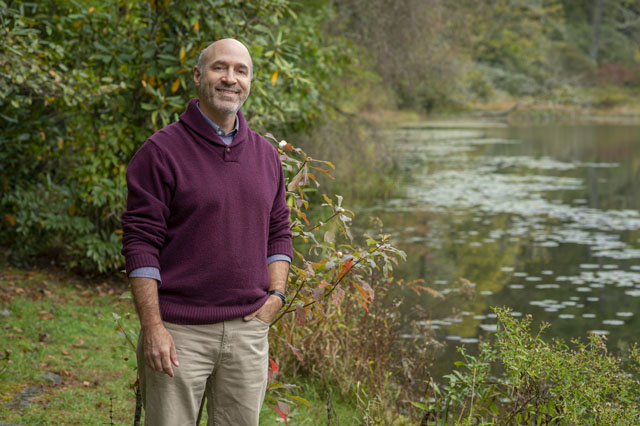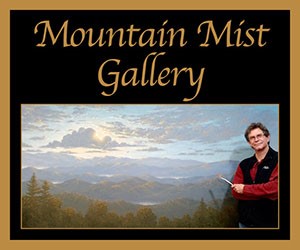Meet Contemporary Southern Writer Wiley Cash
03 Apr 2025
He sees literature as the medium for meaningful conversations
April-May 2025
Written By: CLINT KIMBERLING | Images: Mallory Cash And Amelia Fletcher

Over the past decade, Wiley Cash has emerged as a significant voice in contemporary Southern literature. Cash is the author of four novels set in his home state of North Carolina. He is a true home-grown talent born and raised in Gastonia. He writes about his home state with a sense of authenticity, his characters offering rich portrayals that capture the complexity of its people, history, land and community. “North Carolina is a place that I know really well, and it's a place that I just think I'll always write about,” he says.
After some moving around, Cash; his wife Mallory, a former attorney who now works as a photographer; and their two daughters settled in Wilmington, North Carolina.
While his career trajectory to full-time novelist seems straightforward, Cash insists he did not always know what he wanted to do. His simple plan was to just do what he liked. “I tried my best to make reading and writing a viable career path. I wasn't even really thinking about a career. I was just thinking about what I liked to do,” he explains.
As an undergraduate, Cash studied creative writing at the University of North Carolina (UNC) Asheville. “They had a creative writing track in the English major, and I chose Asheville because of that. Even at a young age, I’ve always been drawn to story and storytelling,” he says.
Doing what he liked meant furthering his education, first earning a master’s in English at UNC Greensboro and then pursuing a doctorate. “I started applying to Ph.D. programs because I wanted to become a better reader. I thought that'd make me a better writer,” he says.
Cash earned his Ph.D. in American literature at the University of Louisiana Lafayette. He applied to this program largely because Ernest J. Gaines, one of Cash’s literary heroes, was the school’s writer in residence and taught a fiction seminar. “It all started with his book Bloodline, which I read my sophomore year as an undergrad,” Cash recalls. “It was the first time I’d read someone writing about land and old people the way my grandparents had talked about land and old people,” he explains.
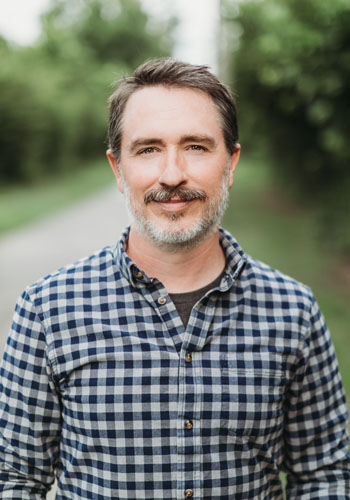
Cash and Gaines cultivated a literary bond that lasted well beyond their time in Lafayette. Today, Cash insists that Gaines’ influence remains present “in everything I’ve ever written.”
While completing his PhD, Cash began writing what would become his debut novel. A Land More Kind Than Home, published in 2012, is a character-driven story set in rural North Carolina and revolves around a boy who witnesses a tragic event in his small town. The novel established Cash as a compelling new voice in American literature, was a New York Times bestseller and won several regional awards.
After the success of his debut novel, Cash sold his second book and decided to become a full-time writer. Clearly, he has realized his early ambition of making a career out of reading and writing.
Cash also teaches creative writing at UNC Asheville, where he began his education. Now, he finds himself in a position to help others make that career a reality. “What’s really great is seeing those students coming in their first year, having them in my classes and then writing recommendation letters for them to go on to an MFA,” he says.
Cash views reading, writing and literature as a way to foster and build community. One way he helps promote his own version of community is through his Open Canon Book Club. Open Canon encourages literary diversity and provides meaningful discussions around literature, exploring diverse books with thought-provoking narratives.
Cash hopes to engage people in conversations about important societal and cultural topics by providing a space for readers and writers, using literature as a medium for meaningful conversations. Open Canon members receive a monthly book selection, and Cash creates a unique readers guide and discussion questions to direct the reading journey.
“I create questions that speak to craft elements at work in the book. And then I also post a prerecorded talk where I break down craft elements in the book,” Cash explains. “It keeps me honest as a writer to constantly be talking about craft. I think it demystifies the writing process when you talk about craft. And it keeps me thinking about the best ways to go about doing my own work,” he says.
Cash also offers one-on-one manuscript coaching and feedback to aspiring writers. “I feel like I’m good at diagnosing the strengths and weaknesses of literary writing, whether it be fiction or nonfiction. Because of my background in academia, I’ve stored up such a well of works to draw from that I can steer students in the direction of what they are trying to do or point to a successful example of what they are trying to do,” he says.
As a professional writer, Cash says he works every day. But it’s not always fiction and not always the novel he’s supposed to be working on. It could be an essay, a magazine or journal article, recommendation letters or even a study guide. “I also read every day. I read voraciously. And for me, reading is as much a part of my writing practice as actually writing is,” he clarifies.
His reading selections lean towards literary fiction, including books by friends and people he knows. But his book choice also largely depends on what he’s currently working on. “I like reading books that will put me in the mindset of what I’m working on,” he says.
And what he’s currently working on is a new novel expected sometime next year. For this book, Cash has returned to Brunswick County, where his 2021 When Ghosts Come Home is also set. Without giving away too much of the plot, Cash says his main character has just graduated with a Ph.D. in archaeology and, to pay back her crushing student loan debt, takes a job working at a plantation on the North Carolina coast. Cash describes her motivation as follows: “She grapples with ethical misgivings of maintaining historical accuracy while also catering to wedding guests and visitors. But she needs money, as we do in a capitalist system.”
One day, his protagonist discovers a Black man living in a tent on the edge of the property. He argues that his ancestors built the plantation and feels he has a legitimate claim to the land. “A battle over land and legacy and history immediately rushes to the surface,” Cash explains.
The plot and themes sound like quintessential Cash. Throughout his career, Cash has displayed an innate ability to explore the emotional and social landscapes of North Carolina as his characters grapple with a deeper understanding of place and how place shapes identity.
It’s a connection that moves beyond just a backdrop or setting. “Place,” Cash says, “is really important. We all come from very distinct places. And I’m really interested in how place shapes individuals. And I try to show how individuals, or even corporations and industry, shape a place.”


